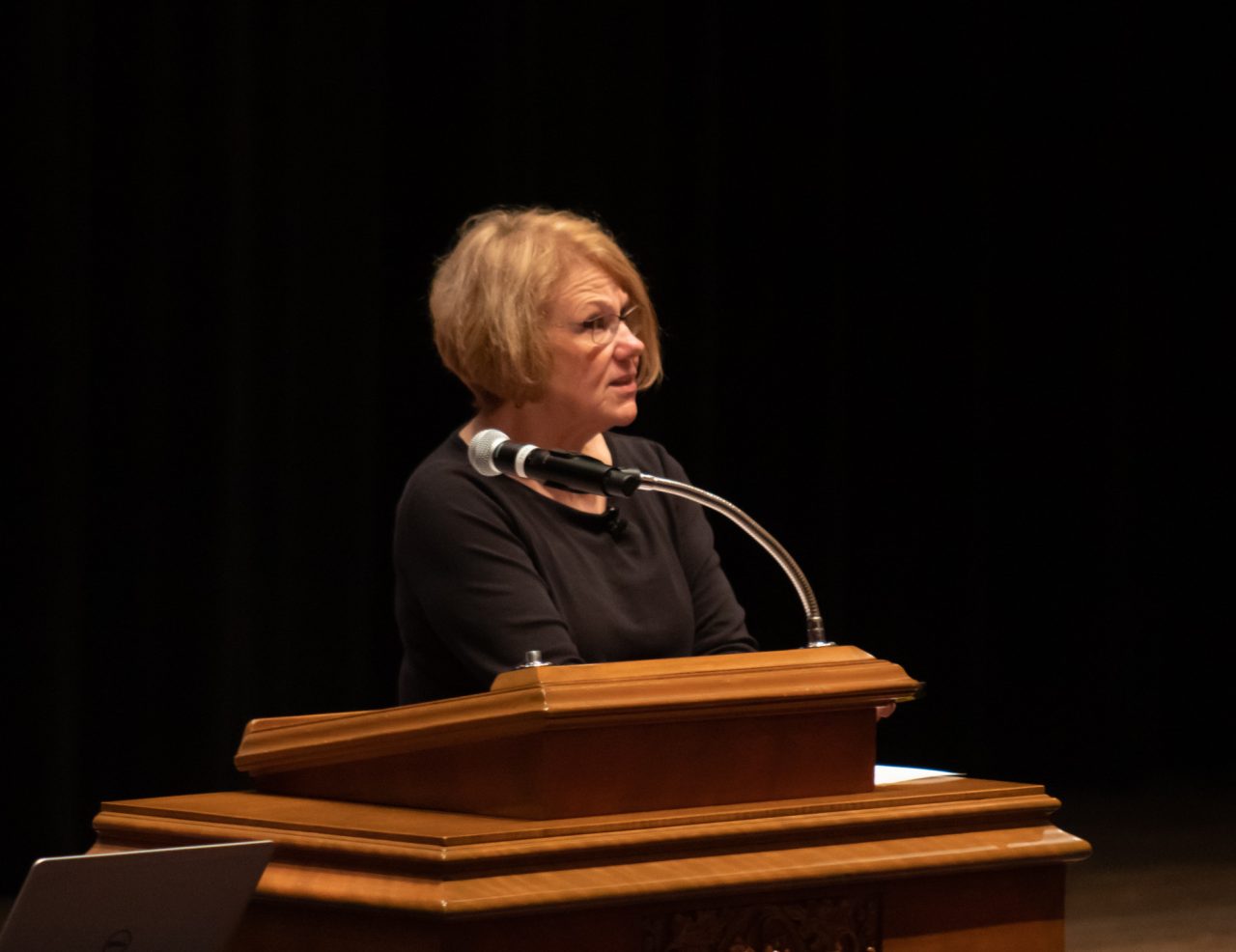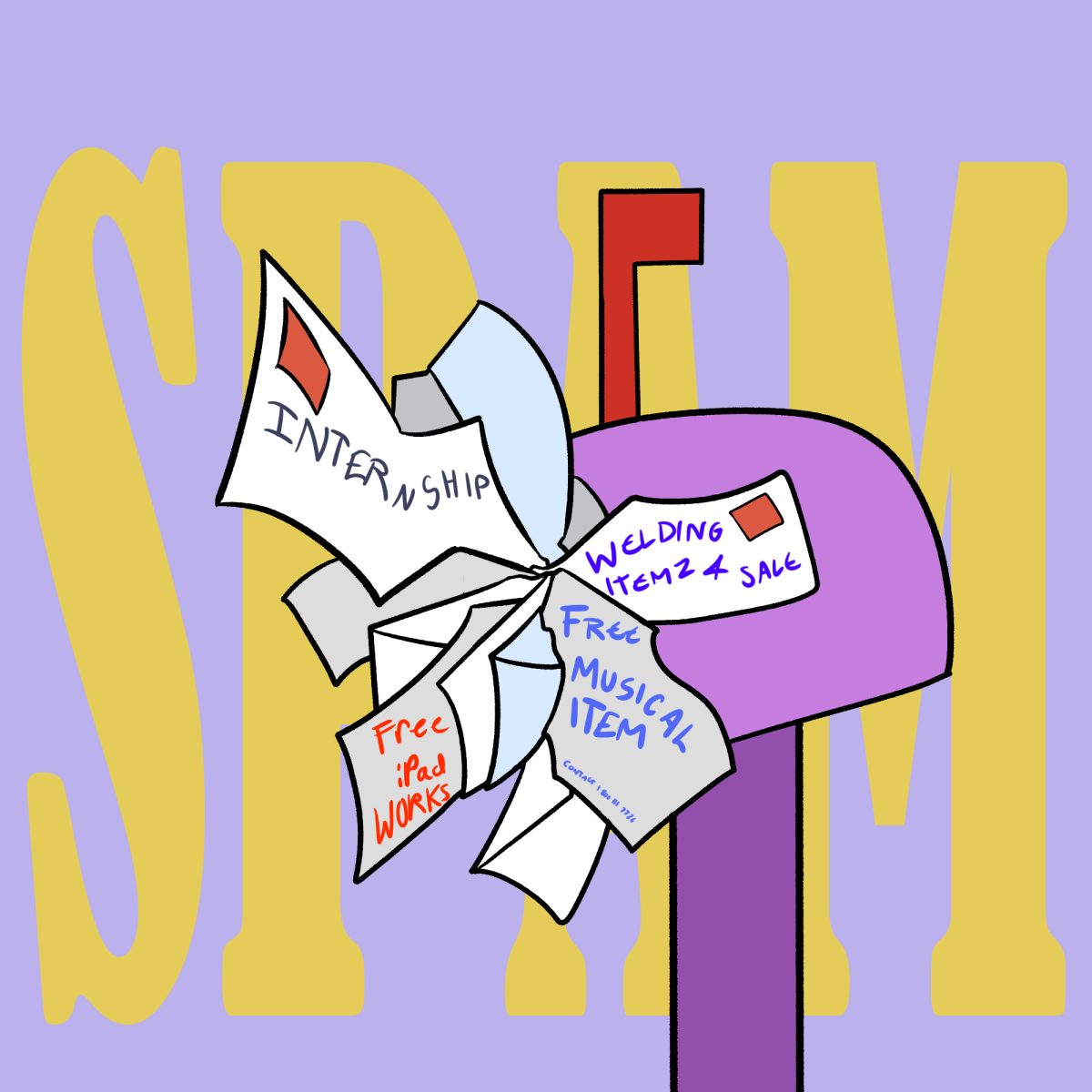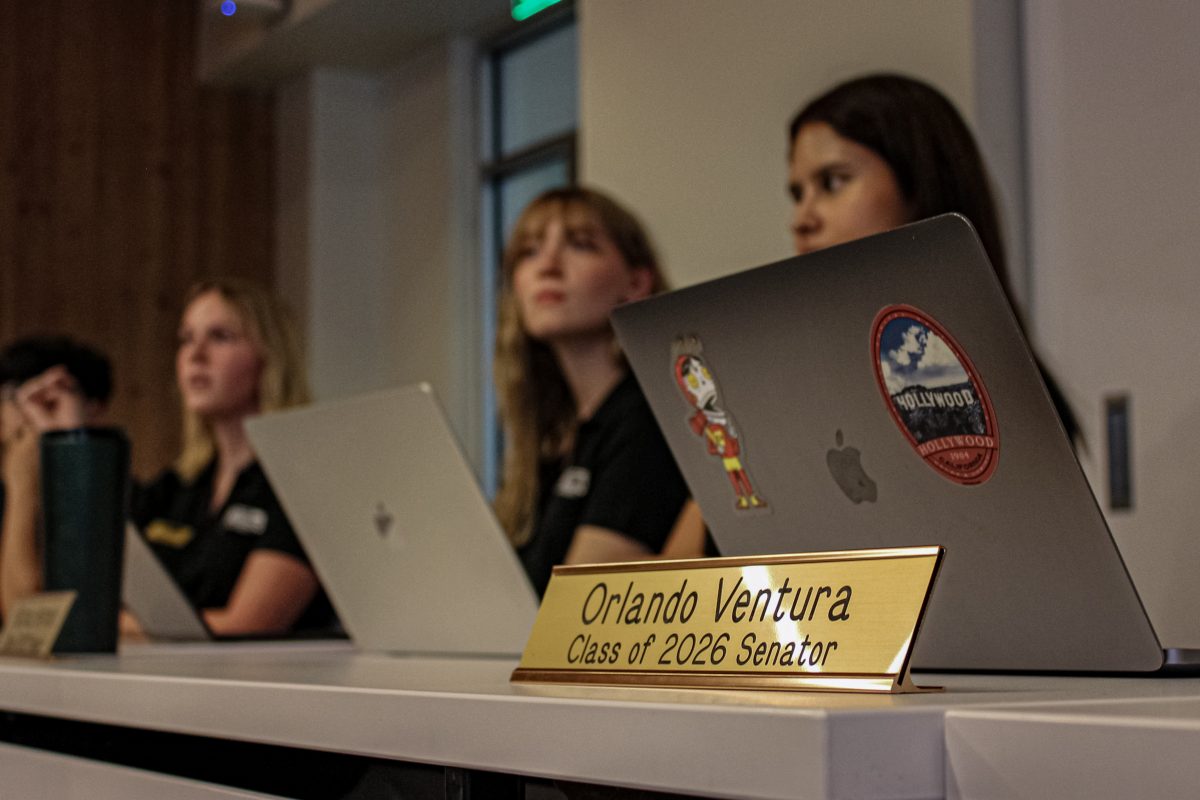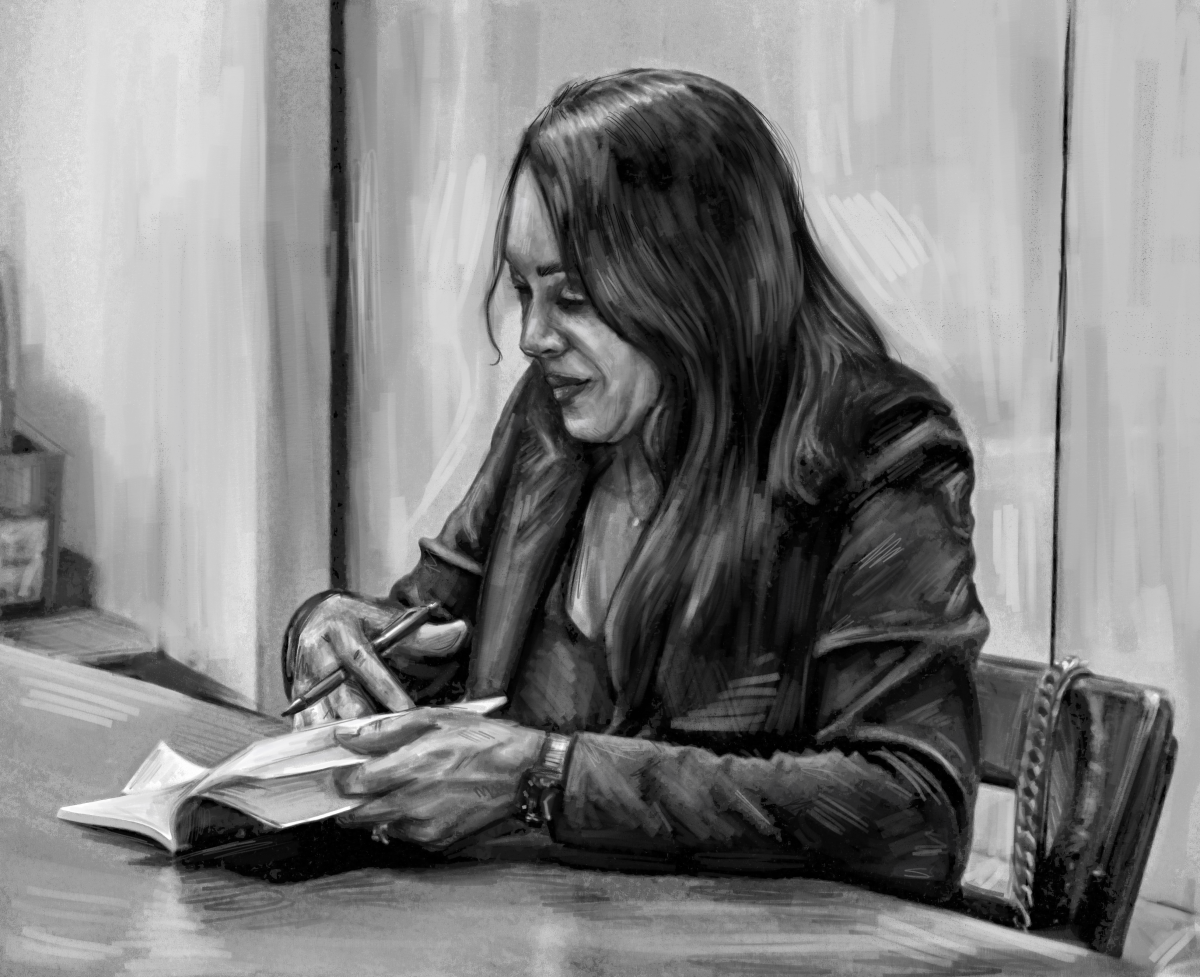Photo by Matthew Claybrook
Evolutionary biologist and guest lecturer Barbara Schaal spoke to about 150 Trinity students and San Antonio community members about the importance of applying scientific discovery for the public good. Schaal was invited by Trinity Women in Science and Technology (TWIST) and spoke as a part of the distinguished scientist lecture series on Sept. 30 in Laurie Auditorium.
At the lecture, Schaal was introduced by Aamuktha Karla, senior neuroscience major and president of TWIST, who spoke about Shaal’s work in politics under the Obama administration and under former secretary of state Hillary Clinton.
Schaal spent much of her hour-long lecture discussing how science has been influenced by culture and politics and how future scientists must take this into consideration.
“If we want science to be relevant, we need to open it up to how scientists are trained and how we think about science. We need to think about issues that we typically think of as the job of the humanities, considering cultures, diversity, community to make science available to everyone,” Schaal said during her lecture.
Karla believes that Schaal’s experience enables her to talk about these issues.
“Science, I feel like, is sometimes treated like a separate entity. Because of that, we sometimes think that it’s unbiased. But science interacts with a lot of other aspects of society like research and education but also policy, and with her experience with policy in the government and her experience as an educator, it was really interesting to see her perspective,” Karla said.
Schaal spoke of the history of scientific discovery during the Enlightenment and how it was rooted in the desire to help people.
“They wanted to understand the natural world so it could make life better for people. That’s exactly how things work now. We study to find benefits for the planet, ecosystems and the organisms that inhabit it and of course the people,” Schaal said.
Schaal believes that diversity will bring important contributions to science.
“When we have a classroom of diverse students from diverse backgrounds of different experiences, that dialogue is richer, and the work is richer. We see the same thing in laboratories. If we want to have the best possible scientific enterprise, the best possible outcomes for science, the best outcomes of the planet, we need to have a diverse workforce, and we need to maintain that diversity,” Schaal said.
Schaal encouraged audience members to consider the ethical implications that advances in science can bring. Specifically, she talked about CRISPR technology which enables gene editing.
“You want to have the benefits, but you want to do this in a way that is appropriate to our morals. This is just one example of how the science might be leaning in one direction, but the culture is leaning in another,” Schaal said.
In addition to the ethical question, Schaal spoke about how policy can influence who benefits from scientific innovation and who is harmed. Schaal referred to the Flint water crisis, climate change and immigration.
“Science has this human component to it. I had the privilege of teaching a humanities course around the Lewis and Clark expedition. When I started that, I thought science was pure, we were unaffected by politics and stuff like that. I was wrong,” Schaal said. “We won’t get the benefits that science can bring if we don’t think about these other things like who is going to get affected.”
To end her lecture, Schaal elaborated on the mistrust that the general public tends to feel towards the scientific community, stressing how important it is to communicate science to the public.
“In the last several years, if somebody doesn’t like something, they say it’s fake and not real. The public is bombarded by all of this information. What we don’t want and what we have seen is a general lack of consideration for science because we say how it is and some people don’t like the facts,” Schaal said. “We’re at a very interesting point right now. Science is not doing great in communicating our concerns. There are really high stakes. We need to be able to communicate science.”
Ruth Varner, junior biology major, thought Schaal’s discussion about communication was interesting and believes that science education needs to go further than it does now.
“I thought it was really interesting the fact that they were talking about how we are trying to make science open to the public. I don’t think we always think about that in some cases. We focus on education, hoping that people will understand science, but afterward, as we put out new information, it’s hard to put that out to the public to where they can understand,” Varner said.
Alex Bradley, senior chemistry major, agreed with Schaal that diversity in STEM is important.
“All sorts of different people think about things in different ways. I couldn’t fathom every type of way to think about a certain problem, especially problems dealing with ethics but also problems in more harder science applications. We need all sorts of people to help out with that,” Bradley said.








